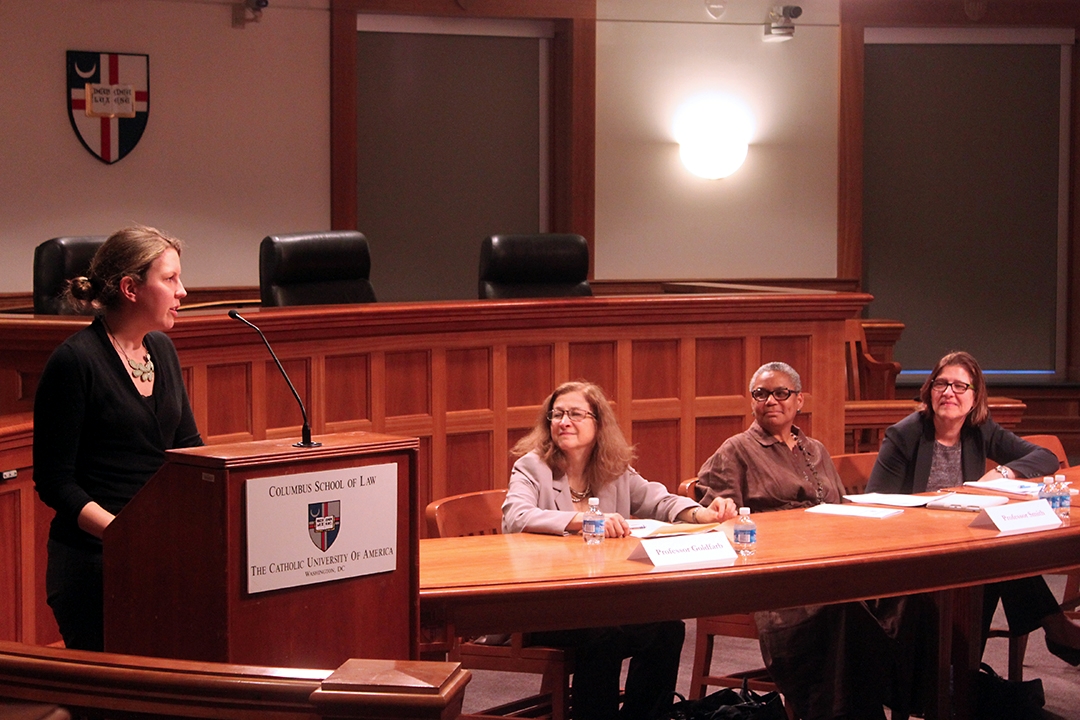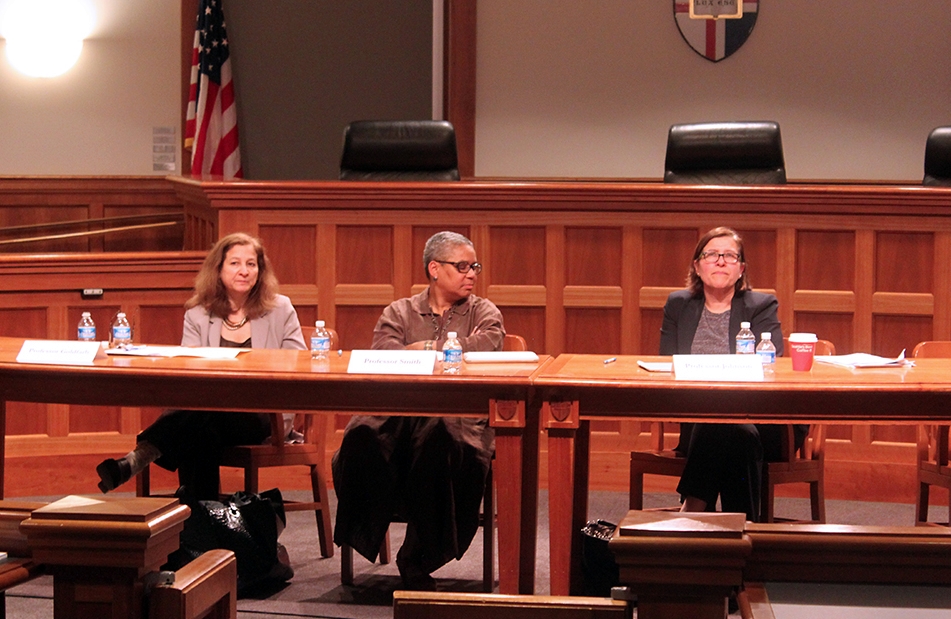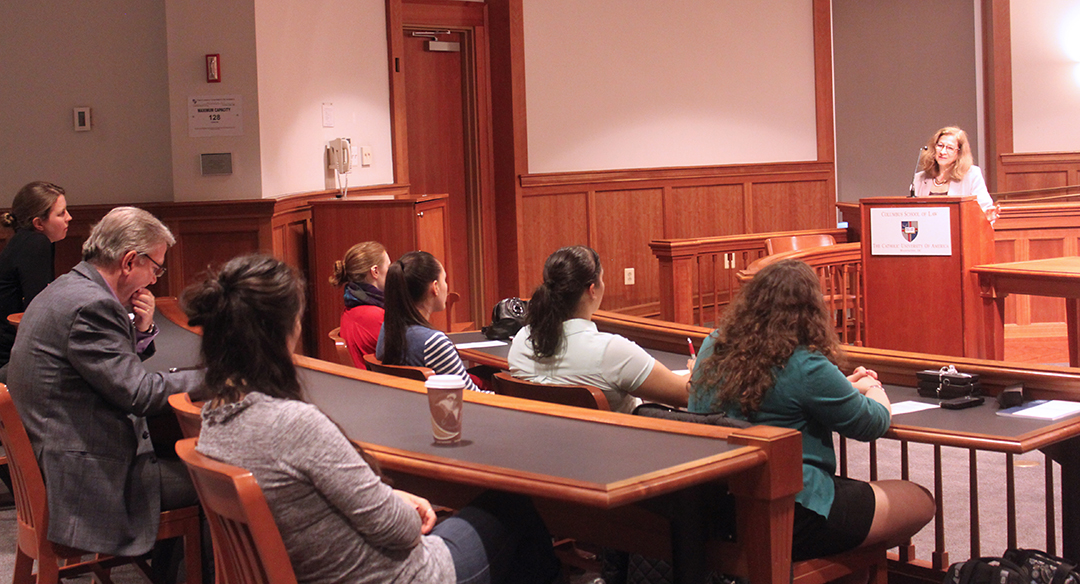
Three legal scholars invited by Catholic University's Women's Law Caucus discussed "Laboring On: A History of Women's Employment Issues and the Supreme Court" at the law school on March 26.
The presentation by the women law professors offered summaries of their work under the auspices of The US Feminist Judgments Project, a Temple University-supported scholarship effort that is described this way: "What would United States Supreme Court opinions look like-and what would their influence be-if key decisions on gender issues were written with a feminist perspective? The US Feminist Judgments Project seeks to answer these questions by pulling together a group of leading feminist legal scholars in the United States to rewrite, using feminist reasoning, the most significant Supreme Court cases on gender from the 1800s all the way to the present day."

The panel discussants were Phyllis Goldfarb, Jacob Burns Foundation Professor of Clinical Law and Associate Dean for Clinical Affairs; Margaret Johnson, Director, Bronfein Family Law Clinic and Co-Director, Center on Applied Feminism, University of Baltimore School of Law; and Brenda V. Smith, professor at the Washington College of Law at American University. Speaking first, Professor Goldfarb analyzed the feminist issues at stake in Bradwell v. Illinois, an 1873 case in which the state's supreme court upheld Illinois' refusal to issue a law license to a woman because the "strife" of legal practice would destroy her femininity. Bradwell has sued for the right to practice under the Equal Protection Cause of the 14th Amendment, adopted just five years prior to the filing of her action. The US Supreme Court, Goldfarb said, brought a very narrow reading to the appealed case, deciding that it was not the Court's role to overturn state laws. A broader, feminist-based understanding of the intent of the 14 Amendment, Goldfarb argued, would have "been a far more historically accurate reading as well." Professor Brenda Smith discussed Dothard v. Rawlinson, a case from the 1970s that dealt with whether height and weight restrictions in place for Alabama prison guards were illegal under the disparate impact theory of Title VII.

Professor Margaret Johnson examined Oncale v. Sundowner Offshore Services, 1998 case that arose out of a suit for sex discrimination by a male oil-rig worker, who claimed that he was repeatedly subjected to sexual harassment by his male coworkers with the acquiescence of his employer. In each case, the panelists explored how a feminist perspective might have supported, opposed, or affected the final ruling from the Supreme Court. More than just an intellectual exercise, the US Feminist Judgments Project, according to its web site, "…brings together feminist legal theorists, practicing lawyers, clinicians and legal writing professors of diverse backgrounds and experiences. The goal is to show how feminist theory and reasoning can actually change the practical course of the law."
